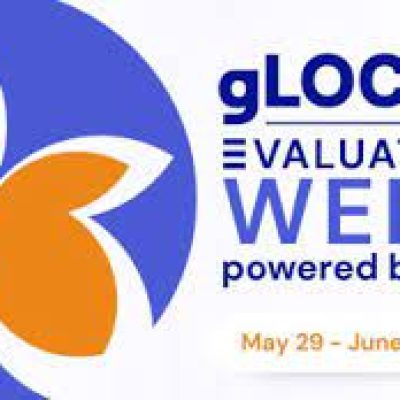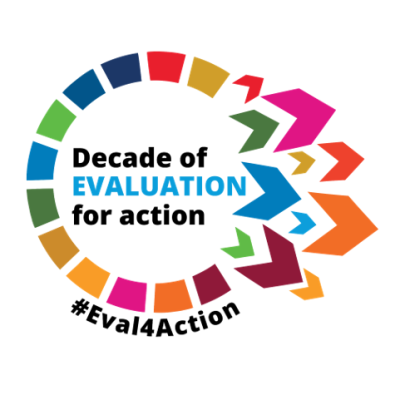On 31st of May 2023, as part of gLOCAL week, Agulhas hosted an online learning event with our partners, Catalyst Management Services (CMS), on ‘Key Collaborations for Influential Evaluations and Resilient M&E Systems’. gLOCAL Evaluation Week aims to inspire a global movement to further country-owned monitoring and evaluation (M&E) that is aligned with local needs, goals and perspectives. gLOCAL week was filled with events around the world, allowing participants to develop and share insight into how their work fits in with regional M&E ecosystems and the larger international M&E community. The initiative is convened and supported by the Global Evaluation Initiative (GEI) – a network of organisations and experts that helps countries strengthen their M&E systems to help governments gather and use evidence that improves the lives of their citizens.
This years’ gLOCAL events focused on the future of M&E, with deep-dives into the themes of culture, context and collaboration and how these help to drive the practice and institutionalisation of M&E. Agulhas were delighted to join the event to share our experiences and learn from others about how we can build stronger M&E systems that are fit for purpose in a changing global context, particularly as we continue to face the impacts of the COVID-19 pandemic, the growing urgency of the climate crisis and rising conflict and humanitarian need.
In recent years we have witnessed a rise in more flexible and adaptive programming designed to better respond to a world where political, socio-economic, environmental and technical challenges to inclusive development and resilience are changing ever more quickly, and where windows of opportunity for positive change both open up and close down abruptly – leaving little time for delay and hesitation. But good adaptive programming also requires a collaborative approach to monitoring, evaluation and learning with continuous feedback loops, bringing together different sets of stakeholders to share knowledge and drive solutions to complex challenges in as close to real time as possible. True collaboration is not just coordination. It is a shared commitment to reimagine ways of working together – merging resources, skills, and unique strengths.
Our panel of speakers shared their experiences of how different evaluation approaches have helped to drive collaboration in different contexts in the UK, India and Jordan, reflecting on how these approaches have helped to strengthen the evidence-base and improve the resilience of local M&E systems.
Kate talked about her experience in providing M&E support to an international climate foundation, focused on maintaining a leadership role in their area of expertise. She highlighted the benefits of working collaboratively with the foundation in developing and refining their M&E framework and data collection tools, as well as undertaking regular independent reviews of the progress. This approach allowed Kate and the team to support ongoing, real-time evaluation of the programme strategy, creating feedback loops for learning and testing the M&E framework in real time, which could then be further refined.
Kate’s case study also highlighted the importance of political economy analysis (PEA), which was included as a methodology component in each evaluation. As the portfolio of projects had been developed and delivered during an unprecedented period of political instability and uncertainty, including Brexit and the COVID-19 pandemic, PEA helped to guide the team through the challenging context and power dynamics. Kate also introduced a social network analysis (SNA) tool that was used to measure the strength of the network supported by the foundation. This tool allowed the team to measure change in the network over time and engage with all grantees through an SNA survey and sense-making workshops, ensuring the evaluation process was collaborative, and that grantees themselves had a chance to see and discuss early findings.
Our CMS colleagues, Siva and Nitish, shared their experience of working with the COVIDActionCollab, an initiative developed during the COVID-19 pandemic to enable vulnerable people to not only survive the pandemic but thrive through high impact interventions and collaborative action. They highlighted the importance of involving different actors in the design, execution and scale up of MEL systems, to share knowledge and good practice. A key takeaway of the case study was how shifting the focus to ‘collaboration’ helps to put relationships and structures in place that build capacity and resilience across the whole system.
A third case study, explored by Theo, looked at the financial inclusion landscape, particularly the use of mobile wallets by refugees, in Jordan. Citizen feedback through primary data collection was a key part of the methodology. Different stakeholders, including Syrian refugees, mobile wallet service providers, UN humanitarian agencies and the Central Bank of Jordan, were consulted in the process, and feedback was gathered to guide policy recommendations for the upcoming National Financial Inclusion Strategy. Agulhas partnered with a local research firm, Mindset, in the assignment and the collaboration created good synergies and outcome, leading to the successful completion of the assignment and a collaborative event where findings were presented.
Several panellists mentioned that engagement fatigue is a key risk for participation in collaborative evaluations. Kate highlighted that during social network analysis (SNA) sense-making workshops, grantees were more readily engaged, as they were keen to see the SNA findings on strengths of the network and where their organisations sit in the network, creating an honest and transparent environment for further discussion. Building trust and involving stakeholders early in discussions on M&E was seen as a key enabling factor for meaningful collaboration.
Collaboration can help us to see and do things differently. Not only does it provide a robust evidence-base for adaptive programming, driven by local context and needs, but inclusive ways of working can help gradually build the systems and networks that are so important for ensuring resilience. While there are clearly still barriers to this way of working, including resources and capacity, we are grateful to gLOCAL week for providing the opportunity to interrogate these challenges and continue to advance the discussion on what makes collaboration in M&E meaningful and effective.



